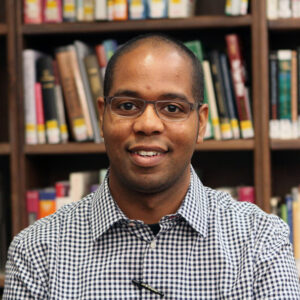I come from a family with a proud legacy of activism, education, and leadership. Unfortunately, like many families, part of that legacy also includes addiction. I was shielded from much of that as a child, but as an adolescent I knew something was awry with certain relatives. As a young adult, I was driven by issues of diversity and I sought out opportunities to learn about cultural groups that were not represented in my hometown of Hampton, VA. I left Virginia to attend Morehouse College, the all-male Historically Black College in Atlanta, GA. Outside looking in, one might think that this population was monolithic, but we were quite diverse. Gender expression, socioeconomic status, politics, family immigration histories – these were just some of the domains that contributed to the substantial heterogeneity of Black America where I began my formal training.
Graduate school was a culture shock. Whereas at Morehouse, I could blend in among those from my race, I lost that ability at the University of South Carolina and “became” an ethnic minority for the first time as an adult. Still interested in multiculturalism, I sought out the classes that taught the vocabulary necessary for having difficult conversations on the topic. Intersectionality became my theoretical orientation and it helped me to describe my vastly different experiences at Morehouse and in South Carolina. As a Black American, I grew up knowing about the hardships many in my racial group experience, but researching Hurricane Katrina taught me about my own male privilege and how women are often oppressed in social, financial, and occupational ways. Later, my research on educational resilience allowed me to delve deep into Latino culture. Immigration, cultural factors, language – all of these domains enrich the Latino experience and opened my eyes to their heterogeneity. It also allowed me to compare and contrast between that culture and my own.
While I was doing all of this research, I also had assistantships to develop my skills. One of my favorites was conducting forensic assessments at the local Juvenile Justice facility. Part of the test battery included asking the youth about their own substance histories and then administering a substance abuse screening inventory, the Adolescent Substance Abuse Subtle Screening Inventory (SASSI-A2). Sometimes youth would tell me they had never tried anything, but their SASSI-A2 scores would pop for high likelihoods of substance abuse problems. Other times, youth would tell me straight up that they sold drugs, or that they had done them for years. At first these stories shocked me, but after a while I came to understand how common experimentation with substances is in adolescence and the strong link between this habit and delinquency.
Another memorable assistantship placed me at a local Department of Mental Health substance abuse treatment facility for adults. Hands down, this was the most rewarding experience I had in South Carolina. I worked with adults ranging in age from 18 to late 60s, men and women, members of the LGBT community, American Indians, Asians, Blacks, Latinos, Whites, and Multiracial folk, people from wealthy families and others struggling with poverty. There, I conducted weekly psychoeducation groups, individual therapy, and psychological assessments. Their stories were as varied as their identities but the common denominator among them all was pain. Pain either drove them to addiction or was the byproduct of the disease. Through these narratives, I began to understand my own relatives’ struggles with addiction without ever discussing it with them directly. It was powerful stuff.
I left South Carolina to attend my pre-doctoral internship at the Center for Multicultural Training in Psychology at Boston Medical Center. This was the first time culture became the focal point of my training, and I took it all in. My five colleagues and I were geographically, socioeconomically, and theoretically diverse – ethnicity was just the first page of the book. We learned how to navigate systems, how to discuss culture in therapy and in research, and how to become comfortable with our emerging identities as multicultural psychologists. We fought for each other, about each other, and with each other. This was another culture shock, but unlike Morehouse or South Carolina, I fit in perfectly.
Now, I have been asked to present a workshop on these two topics: substance abuse and cultural competence. This workshop will review cultural terms for clinicians drawn from the DSM-5, as well as frameworks for understanding intersectionality. I will draw from my own professional experiences to illustrate and punctuate important points, and I hope that the audience will contribute their own as well. Together, we will discuss evidence-based practices for substance abuse treatment, and how to integrate cultural sensitivity into these practices to benefit clients from all walks of life.
 Kip Van Thompson, PhD, is currently adjunct faculty at MSP. Dr. Thompson’s workshop entitled “Cultural Competence for Substance Abuse and Mental Health Professionals” will be held Friday, April 22, 2016 from 1:00-4:15 PM at MSP. This workshop is approved by MCBAP as 3 contact hours specific to substance abuse. Click here to register or to find out more information.
Kip Van Thompson, PhD, is currently adjunct faculty at MSP. Dr. Thompson’s workshop entitled “Cultural Competence for Substance Abuse and Mental Health Professionals” will be held Friday, April 22, 2016 from 1:00-4:15 PM at MSP. This workshop is approved by MCBAP as 3 contact hours specific to substance abuse. Click here to register or to find out more information.